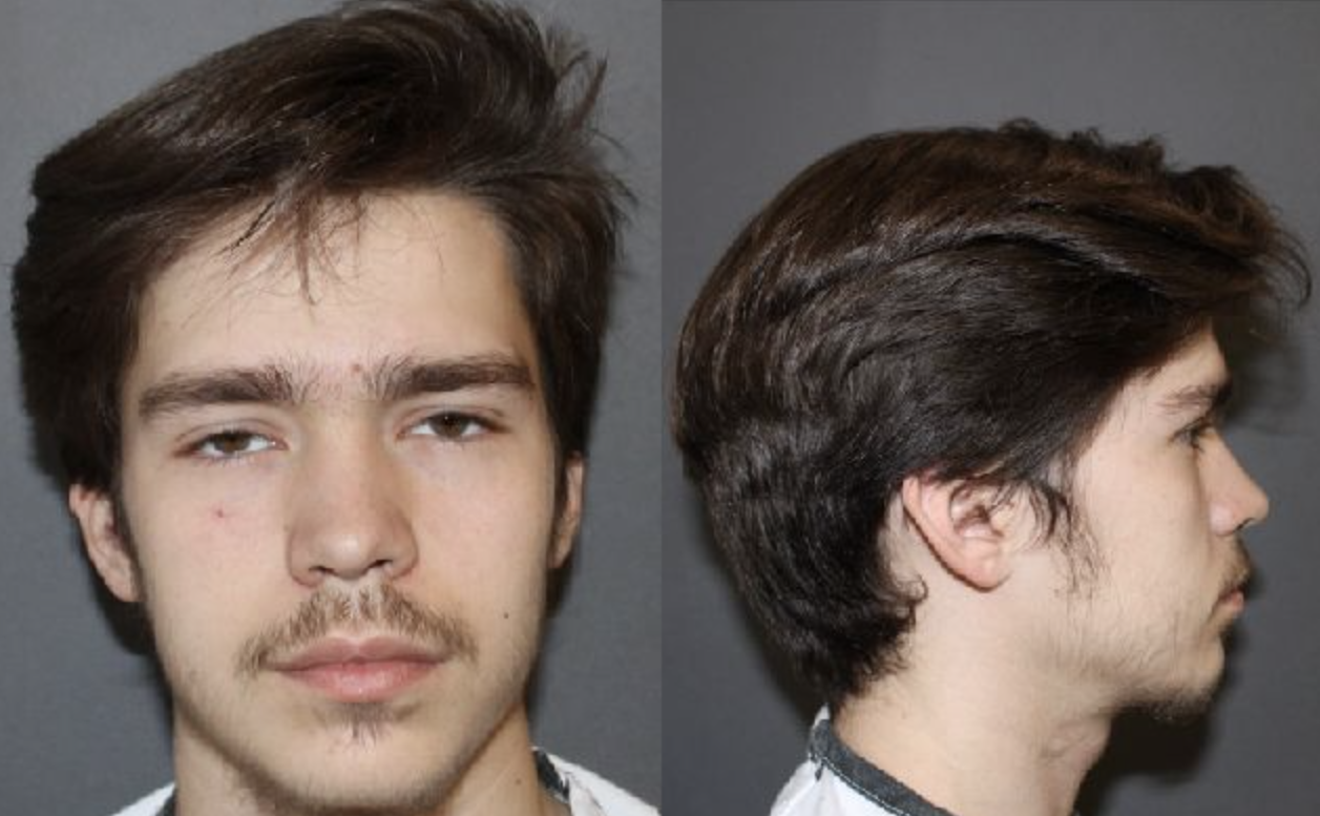No, you're not imagining things. J. Skyler McKinley, the director of public relations and governmental affairs for AAA Colorado, has noticed this deterioration, too. And as was the case for past posts about, among other things, idiots' biggest winter-driving mistakes in the Colorado mountains, he doesn't mince words.
At our request, McKinley has assembled ten terrible habits that are on frequent display along local highways and byways these days, and we predict you'll connect with each and every one of them. McKinley also offers some bonus advice about how to avoid other motoring headaches that's important to remember if you're just getting back behind the wheel after a long absence.
Here are the ten worst habits of Denver drivers, as described by McKinley:
The Autobahn Problem
"At the height of the stay-at-home orders, we saw traffic across Colorado down by as much as 60 percent, and during the pandemic, people basically adapted to higher speeds. Drivers saw that the roads were empty and they could go way above the speed limit — like the speeder who was caught going 128 in a 55 zone. The people who were inclined to ignore the stay-at-home order are also inclined to ignore what the government tells them to do, including ignoring speed limits. So they're driving faster — and because speeds are slowing down, that's going to create some tension."The Mad Max-ification of the Roads
"Now that cars are getting back on the roads, there's more stop-and-go, and somebody who was used to being able to cruise 85 miles per hour to get to their job at the Tech Center is now having to go fifty or sixty. So they're speeding up, then slamming on their brakes, which is a whole other issue. Braking suddenly is dangerous for you and for others, and it causes traffic jams, so don't be in a position where you have to slam on the brakes. Leave at least three seconds of driving distance on a dry day and double that when the roads are wet. Think of it as social distancing our cars, just like we always should have been."The Perfect Road Rage Storm
"With traffic and vehicle miles down during the stay-at-home order, you would've thought the crash rate would go down significantly, and it didn't. It went down some, but not by as much as we would have expected, which told us that people were driving recklessly. And now that people can no longer go as fast they want to, my fear is that they're going to take it out on other drivers. We see that commonly with tailgating or obscene gestures, and that can lead to things like running people off the road. That's something we're monitoring closely."Turning the Fast Lane Slow
"This is going to sound ironic after talking about speeding, but we also have a slowing problem. Some folks have taken advantage of being the only car on the road by spreading out, and that can lead to them driving at inappropriate speeds in some lanes. These drivers have trained themselves into thinking they can drive as slowly as they'd like in the passing lane, and that can lead to people behind them laying on the horn behind them, trying to pass. It's illegal in Colorado on any road with a speed limit above 65 to just sit in this lane, and we've always had this problem. But with drivers returning to the road, we're seeing even more of it."Highway S&M
"A big concern across the categories is retribution from drivers. I think the folks who've been on the roads are accustomed to a certain way of driving, but they're going to encounter other drivers who aren't accustomed to it, and I'm afraid they're going to try to punish those other drivers by not letting drivers into lanes when they should and things like that. And because a lot of folks are pretty rusty from not driving, that adds to the chances of other drivers wanting to take out their frustrations on them."Not Seeing Red
"This is a real pet peeve for me: Decreased traffic has led folks to take brazen, unnecessary risks, and a great example of that is the red light. Drivers think, 'There's nobody on the road and no cops are out,' so they say to themselves, 'I'm going to run this red light.' But you never should do that. Normally, you'd say this is rare, that nobody's going to do that. In surveys, though, 86 percent of drivers say running red lights is dangerous and unacceptable, but about a third of them admit to doing it once a month. This is true for stop signs, too. It's one of the single riskiest things you can do in your car, and with traffic returning, they're in a for a rude awakening."Distraction = Traction
"Distracted driving is always a problem. But one function of the pandemic is that with less traffic, people are more inclined to text and not pay attention because they think the risk is lower. But if you're texting or emailing, you're two to eight times more likely to be involved in a crash. Doing that impairs you under the best of circumstances, and now that drivers are returning to the roads, it's inexcusable and very, very dangerous for you and others. If they think it's safe to do it because no one else is on the roads, they need to disabuse themselves of that idea really quickly."Impairment Despair
"This is part of what I've been calling the 'Hey, the Cops Are Busy' mindset. People assumed that because no one was on the road, they could drive drunk or high and not worry about getting caught. Around 70 percent of high drivers think they're not going to get caught anyway, but I think the pandemic has heightened it. And if they're driving when they're impaired — and that include something as simple as not getting enough sleep — they're a likely candidate for a whole host of other driving dangers."Risks for Riders and Walkers
"The stay-at-home order minted a lot more outdoor recreators — walkers and bikers. And that's great news: Colorado should be the number-one place in the world to walk or ride a bike. But with drivers returning, I predict frustration aimed at pedestrians, cyclists and other vulnerable road users. Drivers assume the roads are only for driving — that nobody else has a right to be on them. And that's just not the case. When drivers come back and see a slew of new cyclists, they might get frustrated and forget that they need to allow at least three feet between a bicycle and their vehicle. We should never get angry when we're driving. There's no rush. You've been inside for months, so you can go slow, be respectful and share the road."












